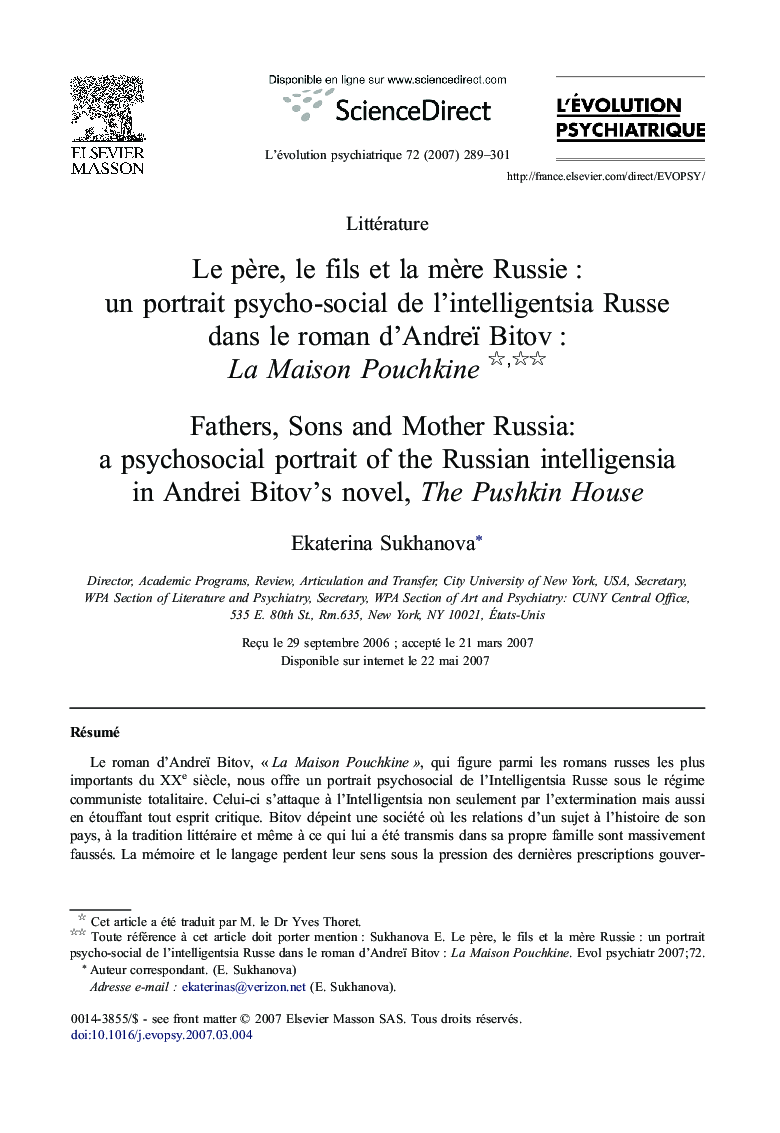| Article ID | Journal | Published Year | Pages | File Type |
|---|---|---|---|---|
| 909065 | L'Évolution Psychiatrique | 2007 | 13 Pages |
Abstract
Andrei Bitov's seminal novel “The Pushkin House” provides a psychosocial portrait of the Russian intelligentsia under the totalitarian Communist regime. The attack on the intelligentsia comes not simply in the form of physical extermination, but also in stamping out critical mentality as such. Bitov depicts a society in which the relationship to the country's history, the literary tradition and even to one's own family legacy are all seriously distorted. Memory and language lose their meaning since it is subject to change as per latest governmental mandate. Continuity with the past is severed. Not being able to come to terms with its past, the society ceases to evolve, and its development stops. The “new man” promised by social engineering turns out to experience identity diffusion, emotional lability and intense dependence on others. The protagonist of “The Pushkin House,” described in a way not unlike an extended case study, reflects the immaturity of his society that is fostered by the existing political order. Ironically, it is when the protagonist of the novel is finally able to look at himself critically and attempts to assume responsibility of his actions, that his functioning within that society is threatened.
Keywords
Related Topics
Health Sciences
Medicine and Dentistry
Psychiatry and Mental Health
Authors
Ekaterina Sukhanova,
